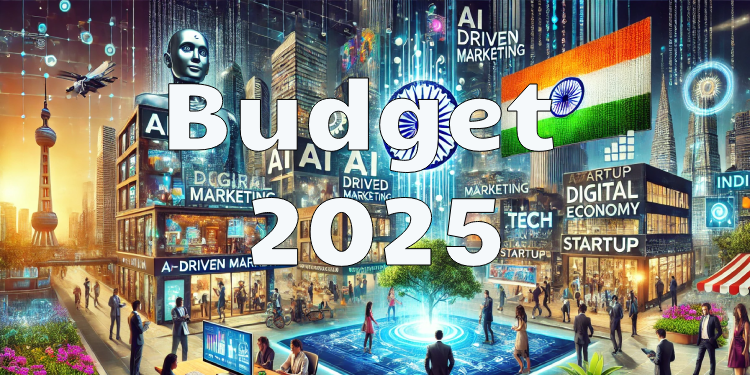The Union Budget 2025 has received positive feedback from industry leaders across key sectors, who have welcomed the government’s focus on strengthening agriculture, boosting consumer spending, enhancing tax reliefs, and promoting inclusive growth. Leaders from FMCG, agribusiness, personal care industries, and other sectors see the budget as a progressive step toward economic acceleration and social well-being.
Strengthening Agriculture and Rural Development
Angshu Mallick, MD & CEO of Adani Wilmar, lauded the budget’s commitment to enhancing India’s agricultural ecosystem. He highlighted the government’s focus on increasing productivity, promoting crop diversification, and improving post-harvest infrastructure.
“The launch of Prime Minister Krishi Yojana targeting low-productivity districts is a progressive step that will not only boost farm incomes but also support the growth of allied sectors like edible oils and food processing,” said Mallick.
He also emphasized the importance of oilseed cultivation and food processing, which will enhance domestic production while ensuring food security. Furthermore, he welcomed the government’s tax relief measures, stating that they would boost disposable income, strengthen purchasing power, and drive demand for quality food products.
Saugata Gupta, MD & CEO of Marico, echoed similar sentiments, emphasizing the budget’s vision of ‘Viksit Bharat’ by 2047. He noted the government’s commitment to rural development through initiatives like the National Mission for Edible Oilseeds, Aatmanirbharta in Pulses, and the Prime Minister Dhan-Dhaanya Krishi Yojana, backed by an allocation of ₹1.71 lakh crore to agriculture and allied activities.
“The continued focus on rural development, with enhanced credit availability for farmers, will drive agricultural productivity and strengthen rural economies. These initiatives will ensure farmers have access to essential resources, leading to stability and growth in the sector,” said Gupta.
Fostering Entrepreneurship and Job Creation
Raj Nayak, Founder of House of Cheer Networks, applauded the budget’s focus on micro enterprises and upskilling youth, which he believes will drive entrepreneurship and create jobs. The push for sectoral growth through incentives for manufacturing, technology, and sustainable energy is seen as a catalyst for long-term economic resilience.
Agriculture and MSME Boost
Haresh Karamchandani, MD & Group CEO of HyFun Foods, welcomed the government’s initiatives to improve agricultural productivity and strengthen the food processing industry. The increase in Kisan Credit Card limits and improved cold chain infrastructure are crucial for empowering the sector, while credit guarantees for MSMEs will boost their production capabilities and global competitiveness.
Gold Industry’s Growth Prospects
Sachin Jain, Regional CEO of the World Gold Council, expressed optimism about the budget’s potential to stimulate the gold industry, citing reduced compliance burdens and the creation of initiatives like the Export Promotion Mission and BharatTradeNet. Amarendra Vummidi of Vummidi Bangaru Jewellers appreciated the reduction in customs duty on platinum findings, a move that will make platinum more affordable for consumers and bolster the jewellery industry.
Support for Manufacturing and Infrastructure
Rakshit Hargave, CEO of Birla Opus Paints, emphasized the budget’s impact on the manufacturing sector, particularly the National Manufacturing Mission, which positions India as a global manufacturing hub. The increased focus on public-private partnerships in infrastructure development and affordable housing was also praised for bridging rural-urban gaps.
Infrastructure: A Key Driver of Economic Growth
Amit Ramani, Chairman & MD of Awfis Space Solutions, expressed strong support for the government’s emphasis on infrastructure development, which he believes will be pivotal for India’s future economic success. With a ₹1.5 lakh crore allocation in long-term interest-free loans to states and ₹25,000 crore for maritime expansion, Ramani emphasized that these investments will strengthen India’s connectivity and trade competitiveness. He also highlighted the importance of the ₹11 trillion allocation for infrastructure, which is set to foster industrial growth, enhance urban living standards, and promote MSMEs.
“Startups will benefit from dedicated funding, fostering innovation and solidifying India’s position as a global entrepreneurial hub,” Ramani said. The focus on improved connectivity, logistics, and urban planning aligns well with India’s push toward becoming a future-ready economy.
Green Economy and Sustainable Development
Dr. Pawan Munjal, Executive Chairman of Hero MotoCorp, praised the bold vision presented in the budget, particularly for the emphasis on green mobility and sustainable development. He pointed to the government’s strong commitment to a clean, sustainable economy, which is in line with India’s leadership ambitions in the EV sector. With substantial investments in green energy and EV technology, the budget positions India as a leader in energy-efficient mobility.
“The automobile sector stands poised for a significant leap forward with investments in green energy and a clear policy framework to support energy storage solutions,” Dr. Munjal said, adding that these measures will accelerate India’s transition to clean mobility.
Boosting the Manufacturing and MSME Ecosystem
Anil G. Verma, Executive Director & CEO of Godrej Enterprises Group, commended the Union Budget’s holistic approach. He highlighted the government’s focus on strengthening India’s manufacturing sector, enhancing supply chains, and reinforcing the Make in India vision. With funding for deep tech innovation and a ₹20,000 crore investment in Small Modular Reactors, Verma emphasized that India is poised to lead in advanced technology and energy sustainability.
“The focus on warehousing infrastructure, especially for air cargo and perishable goods, will improve logistics efficiency and support businesses reliant on secure supply chains,” he said. The simplified business regulations, such as the Jan Vishwas Bill 2, were seen as a key enabler for industry growth, boosting both innovation and expansion.
Empowering the Beauty and Wellness Sector
The Beauty and Wellness industry has also welcomed the Union Budget 2025. Aditya Sharma, CEO of CUT&STYLE Salon, acknowledged the reforms aimed at simplifying tax structures, which will make beauty and wellness services more accessible to a broader audience. He further appreciated the focus on MSME credit guarantees and skill development in AI-driven solutions, which align well with the evolving needs of the beauty industry.
While Sharma sees great potential in the government’s initiatives, he believes there is still room to refine tax structures, especially for beauty and wellness services, to further enhance competitiveness. He also emphasized the need for dedicated programs supporting women-led businesses, which could drive greater innovation and entrepreneurship in the sector.
Retail Sector Sees Growth Potential
Shivendra Nigam, CFO of Cantabil, is optimistic about the retail sector’s growth following the Union Budget 2025. He highlighted the increase in tax exemption limits to ₹12 lakh, which will result in greater disposable income for consumers, thereby driving retail consumption. With the budget’s focus on tourism development and the creation of new employment opportunities, Nigam believes the measures will create positive momentum for the retail sector.
“The increase in disposable income and support for tourism will further boost consumer spending and retail sector growth,” he stated.
Financial Education and Technology Integration
Anant Bengani, Co-Founder and Director of Zell Education, commended the government’s initiatives in enhancing the financial education ecosystem. With the establishment of an AI Centre of Excellence and a proposed Deeptech Fund of Funds, Bengani sees these measures as transformative for financial technology education. The outlay for research fellowships and skilling centers is also seen as a significant step toward preparing future-ready financial professionals.
“We are excited about the potential for financial education to evolve with the integration of AI and deep tech, and we look forward to collaborating on these initiatives,” Bengani shared.
Strengthening Food Security and Self-Reliance
The Food and Beverages sector has shown enthusiasm for the Union Budget 2025, particularly in light of the government’s focus on food security and agricultural self-reliance. Sanket S, Co-founder of Scandalous Foods, highlighted the initiative to make India self-reliant in pulses, a critical step given the country’s heavy reliance on imports. The push for self-sufficiency in food production, combined with the budget’s focus on agriculture and healthcare, is expected to bolster India’s food security and support farmers.
Sanket also applauded the provisions for gig economy workers, which will ensure long-term stability for India’s evolving workforce. “This budget lays a strong foundation for long-term growth and self-sufficiency,” he concluded.
Support for Startups and Women Entrepreneurs
Bhaskar Majumdar, Managing Partner of Unicorn India Ventures, lauded the budget’s emphasis on deeptech and its efforts to back innovative startups through the creation of the Fund of Funds (FoF). He underscored the importance of this initiative in ensuring India remains at the forefront of the global AI and semiconductor races.
Likewise, Mayuresh Raut, Managing Partner of Seafund, welcomed the increase in the credit guarantee for startups, especially for women entrepreneurs. This move, according to Raut, will enable startups to scale faster with less equity dilution and ensure greater participation of women in economic growth.
Overall, the Union Budget 2025 is being hailed as a progressive and inclusive step towards driving economic growth. By focusing on key sectors like MSMEs, manufacturing, agriculture, and infrastructure, the government has laid a strong foundation for a resilient, sustainable, and inclusive economy. The budget is expected to empower businesses, stimulate consumer demand, and create opportunities for growth, making it a pivotal moment in India’s journey toward becoming a global economic powerhouse.
















